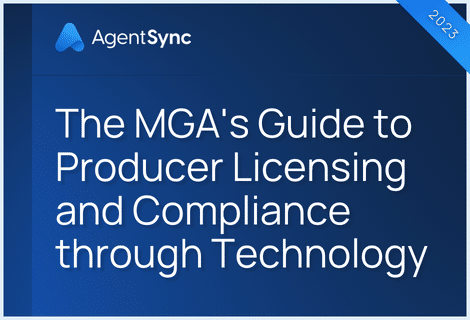

State laws and regulations may determine how insurance industry professionals “should” act, but often regulators only know about violations when consumers complain. That makes consumer complaint investigation and enforcement one of the highly important yet often overlooked checks on the industry.
We sometimes see the results of those investigations when a state insurance commissioner issues a statement about a settlement or enforcement action. But a lot happens “behind the curtain,” so to speak, with much of the work in consumer and industry protection going unseen.
For some up-close commentary on trends in the consumer complaint and investigation space, the states of Virginia and Wisconsin weighed in. We talked with Michael T. Beavers, deputy commissioner with the Virginia Bureau of Insurance’s Agent Regulation Division, and we conducted an email interview with a spokesperson with the Wisconsin Office of the Commissioner of Insurance (OCI), who compiled responses from investigators.
The following Q&A has been edited from their responses for context and clarity.
Would you describe the process for vetting consumer complaints in your state?
Wisconsin:
When we receive a complaint, we set up a file immediately and send a written acknowledgment to the complainant to confirm receipt and provide the assigned examiner’s contact information. We then send a copy of the complaint to the company and/or agent named in the complaint.
The assigned examiner doesn’t review the file until we have both the complaint and the company/agent response. Then, our team reviews the file in its entirety to determine if there are indications of a violation of Wisconsin insurance laws. During this process, the assigned examiner commonly will discuss the matter within their work unit and sometimes consult our legal unit. We may ask the company/agent for more information.
Once we have determined the issues and determined whether violations were identified, we write back to the complainant with our summary and next steps as applicable. If the complainant disagrees with the outcome of the review, and has additional information they believe wasn’t included in our initial investigation, they have the option to request an additional level of review. That review occurs at the team lead/supervisor level.
Virginia:
The way Virginia is structured, we provide great opportunities for input before taking any action against an agent. Investigators get a complaint, a supervisor will assign a field agent who will then go out and talk to the consumer, they’ll talk to the company, they’ll talk to any stakeholders, they’ll talk to the agent, they’ll review files and records from each party.
We’ll have exit interviews with the agent where we’ll point out, “you violated this section of the code, can you tell us why?” Then the agent will prepare an investigative report and it’ll go through a review process. If we believe the agent or company violated the law, we’ll send a show-cause letter explaining what we identified as the problem and the section of the code, and ask, “Tell us why we shouldn’t find you in violation?”
We’ll send a letter explaining the decision and the settlement, and if they don’t agree, then that’s when we’ll move toward something like revoking a license or referring to the judicial system if it’s necessary. It’s a lengthy process, and we have a lot of opportunities for people to explain themselves. Some cases wrap in a couple of days, some take years. We’re not out there to hammer agents, we’re just looking for compliance.
What are the most common misconceptions you encounter in insurance complaints?
Wisconsin:
From agents, there is sometimes a misconception that the Wisconsin OCI regulates an agent’s employment contract with an insurer.
From companies, we occasionally encounter a misconception that OCI has additional background information from a consumer complaint that we have not shared with the company. Our complaint process includes providing a complete copy of the complaint information to the company for their review and response. So, OCI typically does not have background information that we haven’t shared.

From consumers, the biggest misconception is that OCI can “adjudicate” an issue, or by extension, that OCI “represents” the consumer in their dispute with the agent or company. We are a regulatory body, and while we can enforce insurance laws, we can’t make factual determinations the way a judge or jury might through the court process. We don’t have roofing experts or medical experts on staff to make determinations about whether there is hail damage to the roof, or whether a procedure is medically necessary. Our role is simply to enforce the existing state laws and regulations in place and ensure that all parties are acting appropriately within them.
Virginia:
The agent or company then has another opportunity to explain themselves, to take responsibility if they were in violation, or to refute the findings, to explain mitigating circumstances. Most people avail themselves of this option, and then, if we go through that process and determine they are in violation, we consider their explanation and talk about a penalty amount and settlement process.
Some people have a misconception that they’ll never get to tell their side of the story. The judges who oversee the state corporation commission, of which the bureau of insurance is a part, are very big on making sure that before we take action against anybody, they know their rights, they know their opportunities for appeal, and we’ll continue to respond and work with them as much as they want before we take action.
You’re always going to have that crowd that thinks you’re out to get them, that you’re going to come in and try to find something wrong. What a lot of agents don’t recognize is the number of agents each year that my staff proves innocent. We’ll get a claim against someone from a consumer, agent, company, or employee. And we go in with a very open and objective mindset.
Our investigators are just there to gather the facts for decision-makers to determine if there’s a penalty involved. There are a good number of agents each year that we exonerate because we find the information is unsubstantiated, or it’s a false allegation, or there’s additional information the complainant didn’t know that means the situation was not a violation. A lot of agents don’t realize we prove a lot of people innocent each year! A lot of agents who get caught up in a complaint each year thank us for the opportunity to explain and for not taking a hammer approach that presumes they’re guilty.
Some other misconceptions: The bureau doesn’t handle consumer fraud considerations, those get handled by the state police. Also, we have consumer service sections in property and casualty or in life and health and other divisions within the bureau. Those consumer service sections handle consumer complaints where the consumer is saying the carrier isn’t paying a claim, or things like that, and those teams get into the weeds of those consumers’ insurance contracts. But otherwise, on the investigative side, we don’t get into contractual disputes between companies and agents. Disputes about terminations or compensation are between carriers and agents and the courts.
What trends have you identified as far as consumer complaints are concerned?
Wisconsin:
Complaints filed in 2021 reflect a similar trend to complaint patterns of prior years, with a slight uptick in travel insurance complaints, especially concerning the early months of the pandemic. As in prior years, claim handling disputes (such as fair settlement amounts and claim resolution delays) represent the largest number of complaints filed.
Virginia:
Some trends have stayed consistent. On the property and casualty side, we’ve seen an increase in public adjusters who may be getting paid but who didn’t ever talk with the consumer, are unlicensed, or who are creating their own paperwork. The life and health side of the industry also sees consistent challenges with misrepresentations in products, where an agent is inappropriately replacing life insurance contracts, or an agent is overpromising contract values. In title insurance, the workload tends to go up and down with the real estate market.
Cyber challenges are also on the rise. While one cyber breach is bad, we’re just seeing way too many. Stealing settlement information from consumer and agency emails, ransomware, or physical breaches from agents who steal competitive data have all increased. So, we’ve implemented a reporting process in Virginia to address that.
Virginia also implemented fingerprinting for new licensees this year. We’re getting quite a few hits on the fingerprint results. Of course, we want to make sure we have all the information surrounding any convictions and take necessary time to evaluate the circumstances.
Most agents we run across are good agents who try to do the right thing. It’s a very small population that causes problems. When you have as many agents and agencies as we do – about 350,000 – there are bound to be some bad eggs. Our goal is to identify those few individuals and take corrective action to get them in compliance or remove them.
To stay abreast of compliance regulation trends, follow the AgentSync blog. And to see how AgentSync Manage can keep you in compliance even while you scale, check out a demo.

